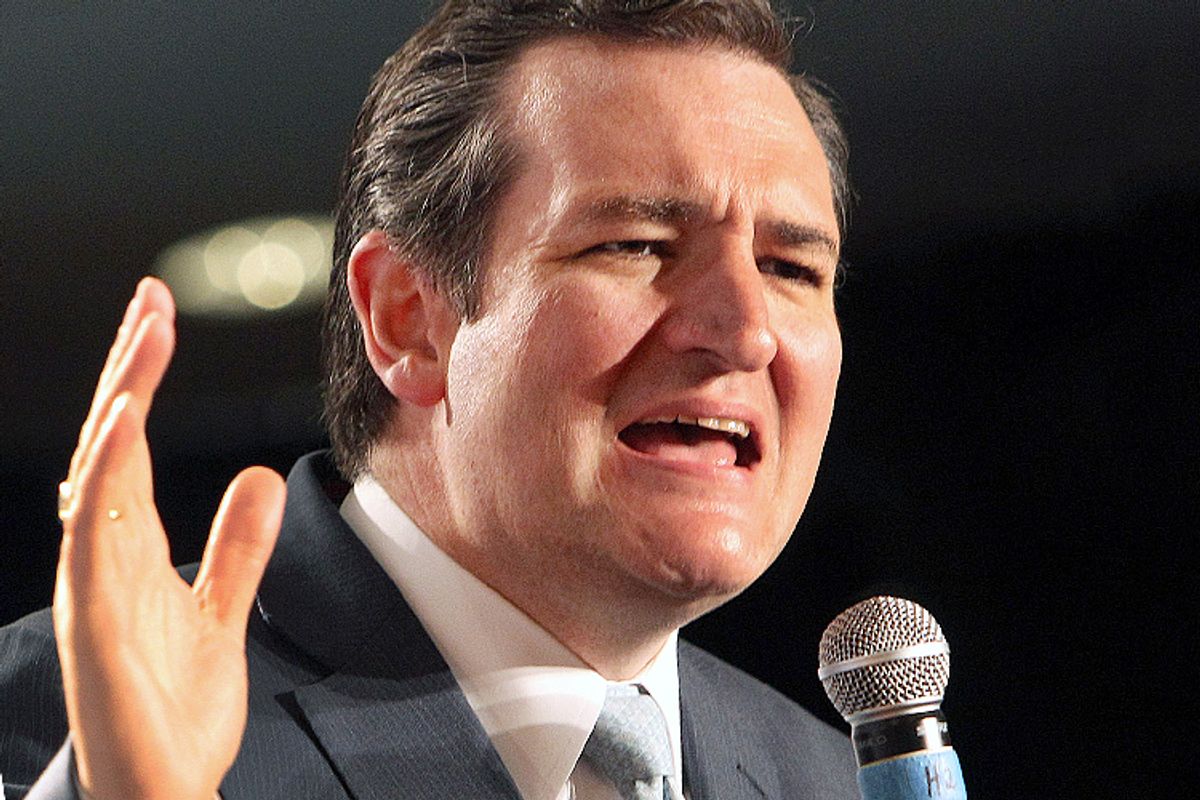The air war over the Affordable Care Act has always been a lopsided affair. The passion and resources of the law’s detractors far outweighed those of the law’s defenders, and that imbalance was reflected in the obscene amounts of money thrown into anti-Obamacare advertisements. A report released in May found that a total of $445 million had been spent on TV ads mentioning the Affordable Care Act, and spending on anti-ACA ads outpaced pro-ACA ads by 15-to-1. The 58,000 positive ads that were aired up to that point were dwarfed by the 880,000 ads produced by the law’s opponents.
The obvious question raised by this huge spending disparity is how it would impact the competitive Senate races across the country, which are being fought largely over Obamacare. The people funding the anti-Obamacare spots – like, say, the Koch brothers – have an obvious political agenda: to take down the Democrats who support it. But as the law was implemented late last year, it transitioned from being just a political fight to a real-world struggle. The success of the law depended on people actually signing up for coverage, and Obamacare opponents wanted those enrollment figures to be low. So what impact did the negative advertising have on Obamacare enrollment?
Well, according to a study from the Brookings Institution, the massive glut of negative Obamacare ads may have backfired.
Brookings fellow Niam Yaraghi calculated the per capita Obamacare advertisement spending per state and compared it to ACA enrollment figures. He found that in states where Democratic senators are running for reelection (which is to say, states with very high levels of spending on anti-Obamacare advertisements) negatives ads actually boosted ACA enrollment.
One explanation he offers is obvious: A lot of advertisements about the Affordable Care Act, positive or negative, meant high public awareness of the law among the state’s residents: “Anti-ACA ads may unintentionally increase the public awareness about the existence of a governmentally subsidized service and its benefits for the uninsured.” Yaraghi also makes another observation, which is a bit more subtle, but far more ironic:
On the other hand, an individual’s prediction about the chances of repealing the ACA may be associated with the volume of advertisements against it. In the states where more anti-ACA ads are aired, residents were on average more likely to believe that Congress will repeal the ACA in the near future. People who believe that subsidized health insurance may soon disappear could have a greater willingness to take advantage of this one time opportunity.
If this is the case, then you have to laugh. The anti-Obamacare crowd, in loudly pushing for the law’s repeal, actually got people thinking that the law might not survive. And so they jumped at the chance to get subsidized health coverage while the getting was still good. By confidently predicting the law’s eventual demise, they may have accidentally helped ensure the law’s survival.
Going back to the politics, Yaraghi’s number crunching also confirmed what everyone probably could have guessed: states with competitive Senate races saw the highest rates of spending on anti-Obamacare ads. “The four states with the highest per capita spending on anti-ACA ads are Kentucky, Arkansas, Louisiana, and North Carolina.” The Senate races in all of these states are either toss-ups or competitive, which leads one to ask whether the flood of advertisements attacking the law and the Democrats attached to it are having the intended effect.
National Journal’s Alex Roarty reported a few days ago that Republican campaign strategists are debating this very point. People have been deluged by Obamacare advertisements for so long that public opinion of the law at this point is ossified. Per Roarty, Republicans “worry that the years-long deluge of media coverage and negative ads have pushed Obamacare to something close to a saturation point among voters, who will simply tune out any additional TV ads or candidate speeches on the topic.”
That’s a pretty good indicator of how drastically Obamacare’s political trajectory has been altered over the past few months. When the law was stumbling through its rollout, Republicans and conservatives were confidently predicting that Obamacare would be the defining issue of the 2014 midterms, and it would sink the Democrats. “Total poison across the country,” was how Republican National Committee chair described the law in March while predicting a “tsunami-type election in 2014.” Since then, Obamacare has slowly, steadily receded as a campaign talking point as the law shook off its initial failures and actually started working.
And if Brookings is right, part of that success can be laid at the feet of the ACA’s biggest enemies, who sunk hundreds of millions of dollars into an unwitting public awareness campaign for the law they want dead.

Shares